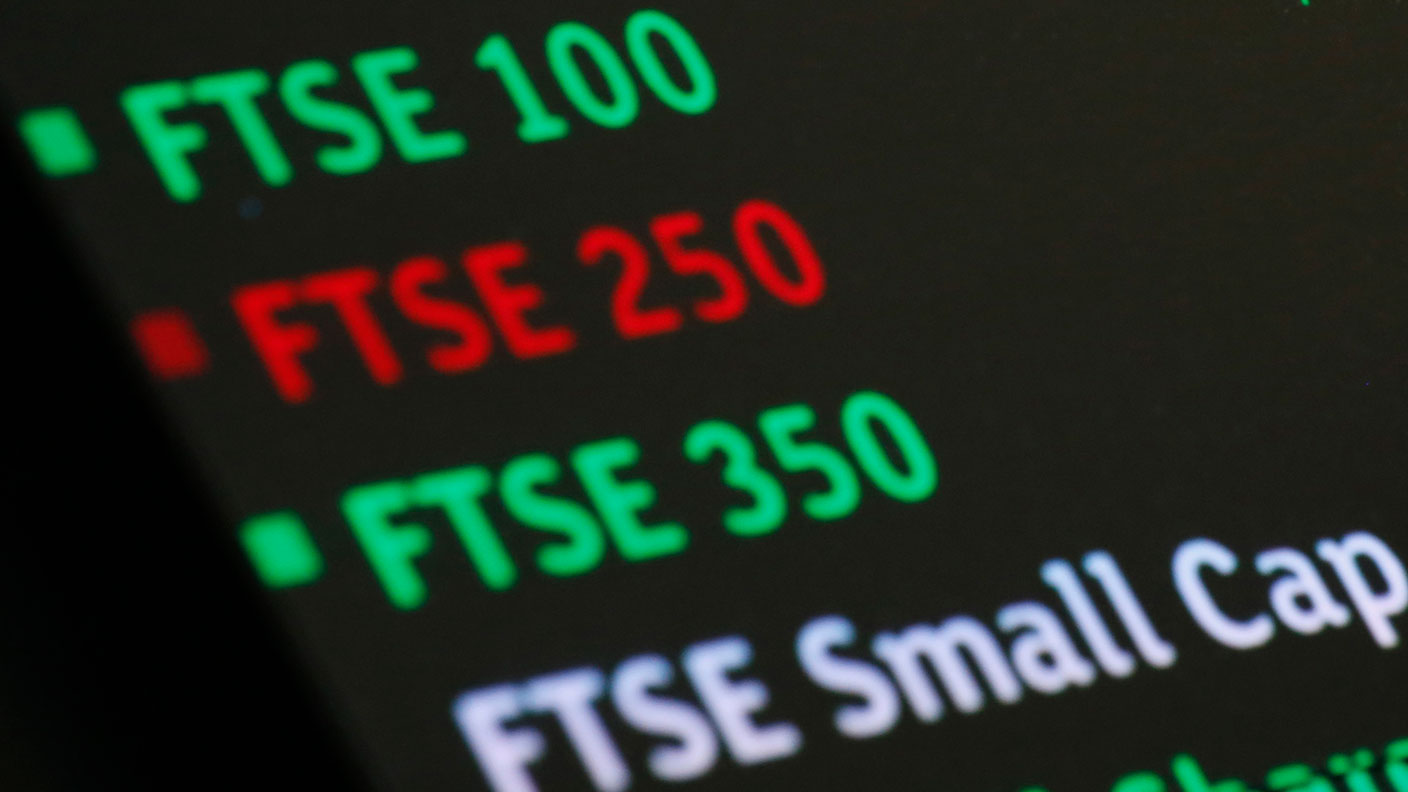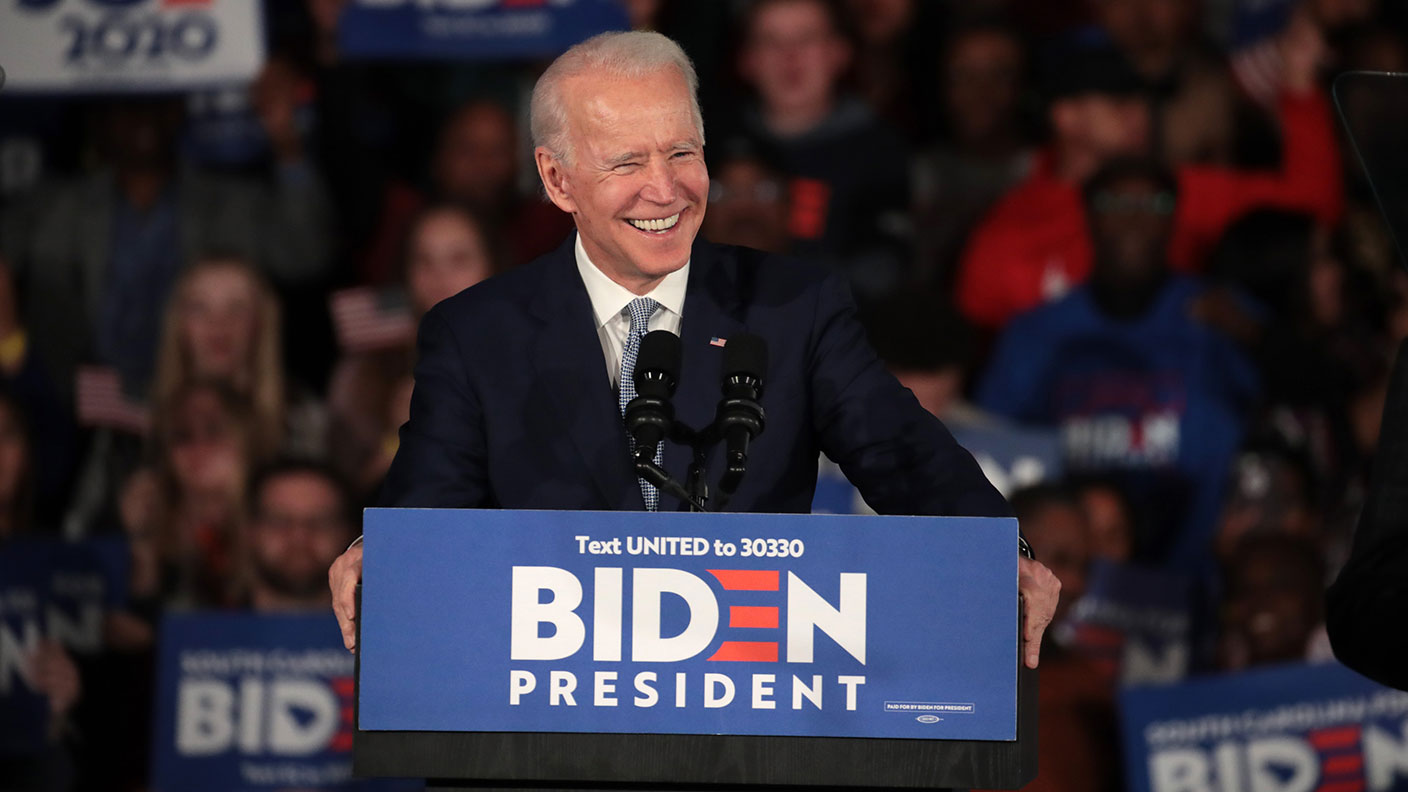Why on earth does anyone own open-ended property funds?
Many things in finance are complicated, says John Stepek. But whether or not to put your money in an open-ended property fund is not one of them.

Get the latest financial news, insights and expert analysis from our award-winning MoneyWeek team, to help you understand what really matters when it comes to your finances.
You are now subscribed
Your newsletter sign-up was successful
Want to add more newsletters?
Ah, liquidity. It sounds kind of complicated, doesn't it? The good news is that it's not. If an asset is liquid, it's easy to sell quickly without overly affecting the price. If an asset is illiquid, it's hard to sell quickly without overly affecting the price. Is an office block liquid or illiquid? Stupid question, isn't it? It's clearly illiquid. Takes a while to sell an office block, even if people are tearing down your door in the hunt for office space.
So, would it make any sense at all to get a load of people to chip in money to buy an office block, and then tell them that they could withdraw the value of their stake, in cash, any day of the week, with no notice? No, that'd be stupid. Who'd be stupid enough to do that? Take a wild guess...
Another open-ended fund chokes on illiquidity
Fund manager M&G has just been forced to close the doors ("gating") on its £2.5bn commercial property fund. It's the same story that we saw in 2016 following the Brexit vote. And it's the same thing as we saw with Neil Woodford's fund. Too many people have been pulling their money out too quickly, and the underlying assets are too illiquid to allow that to continue without badly impacting the remaining fund holders.
Try 6 free issues of MoneyWeek today
Get unparalleled financial insight, analysis and expert opinion you can profit from.

Sign up to Money Morning
Don't miss the latest investment and personal finances news, market analysis, plus money-saving tips with our free twice-daily newsletter
Don't miss the latest investment and personal finances news, market analysis, plus money-saving tips with our free twice-daily newsletter
The M&G Property Portfolio was put on hold yesterday. M&G said: "In recent months, unusually high and sustained outflows from the M&G Property Portfolio have coincided with a period where continued Brexit-related political uncertainty and ongoing structural shifts in the UK retail sector have made it difficult for us to sell commercial property." The fund has seen quite a slump this year. Net outflows, reports Morningstar (via the FT), came to £901m in the first ten months of the year, compared to just £299m for the whole of 2018. By the end of October, the fund had just 5% in cash. Rival property funds Aberdeen UK Property and SLI UK Real Estate were quick to highlight that they hold 12.7% in cash and 15.7% respectively, according to the FT.
So what's going on? You can see why these funds ended up being closed to withdrawals after the Brexit vote. Investors flooded out in a somewhat hysterical response, but the funds were able to open up relatively soon afterwards when it became clear that Brexit was a process rather than an event. (It is a mystery to me why people still own these funds after that happened, but we'll get to that a bit later.)
M&G is now arguing that ongoing Brexit uncertainty, combined with the battered state of the high street, has made it hard to sell property (ie, the underlying assets have become even more illiquid). But meanwhile, people have been pulling out much more rapidly than they were before. Why's that? I haven't spoken to anyone about this, but I suspect that Neil Woodford provided a valuable wake-up call to private investors and also to their advisors.
Suddenly, everyone cares about liquidity. And the most obviously illiquid funds around are open-ended commercial property funds. So, if I'm honest, I suspect this is not a Brexit or even a high street decay story, it's a Woodford story.
Don't own these funds. It's really, really simple
But what does it mean for you? Firstly, if you don't have money in this or in any other open-ended commercial property fund, then well done you. You've clearly been paying attention during the last three and a half years. Secondly, if you've got money in this fund, there's nothing you can do. So there's no point in worrying about it. I don't know how long it'll be closed for. M&G says the suspension will be reviewed every 29 days. We'll keep you informed. I mean, now they're in a position where they're under pressure to sell stuff. Being an under-pressure seller is never great and it's not going to help them to fetch a good price for their assets. So, don't expect great returns when the fund does open again. (Oh, and they're going to wave 30% of the annual charge. Big deal.) Finally, if you own assets in other open-ended commercial property funds, you have to think about what you're going to do. M&G was in the weakest position, no doubt about it. That's why it's the first to go.
But if you're going to panic, then you might as well panic early. Because others will. And if you decide to sit tight, then do give some thought to that process. Why do you own this stuff, in this specific manner? Even if you don't care about daily liquidity, do you think that having to manage the spectre of mass withdrawals helps or hinders the fund manager of an open-ended property fund, when they are trying to do their job every day?
Do you think that worrying that their fund will one day be gated helps them to choose the best properties? To find the hidden value in the market? To negotiate shrewdly? What's the benefit here for you, the end customer? Please write to me if you figure it out, because I can't see it.
One key benefit of investing in illiquid assets is that you earn an illiquidity premium. In other words, you get paid a bit extra because you know you'll have to wait to get your money out, and that getting your money out might also be a bit fraught, depending on when you try to do it.
If you buy an illiquid asset using a vehicle that promises constant liquidity, then you are missing the whole point. If the liquidity is managed so that the fund is genuinely liquid at all times, then the manager will always be sitting on so much cash that you'll erode your returns that way.
And if the liquidity isn't managed effectively enough, then you end up in a situation where the manager becomes a forced seller in any case. There is no way to look at this and think: "hmm, open-ended commercial property funds are a good idea". Now maybe the FCA should ban them, rather than just monitoring them more tightly (as it will from next year). Maybe the funds should have bigger warning signs on them. Maybe they should all be forced to convert into investment trusts. Whatever. That's a question for the boys and girls at that end of the business to fret about.
But as for you, you don't have to invest in these things. So, don't. If you own any open-ended commercial property funds, then I suggest you sell them at the next viable opportunity and reinvest your money in a similar real estate investment trust. You still get to own commercial property (assuming that's what you want to own), and the fund manager doesn't get overly distracted by liquidity management.
Lots of things in finance are quite complicated, but this really isn't one of them.
Get the latest financial news, insights and expert analysis from our award-winning MoneyWeek team, to help you understand what really matters when it comes to your finances.

-
 Financial education: how to teach children about money
Financial education: how to teach children about moneyFinancial education was added to the national curriculum more than a decade ago, but it doesn’t seem to have done much good. It’s time to take back control
-
 Investing in Taiwan: profit from the rise of Asia’s Silicon Valley
Investing in Taiwan: profit from the rise of Asia’s Silicon ValleyTaiwan has become a technology manufacturing powerhouse. Smart investors should buy in now, says Matthew Partridge
-
 What’s happened to the small-cap effect?
What’s happened to the small-cap effect?Sponsored Small-cap stocks have traditionally outperformed their blue-chip cousins. But is this still true today? Max King looks at their performance, and the advantages of investing in small-cap-focused investment trusts
-
 Why Britons are much wealthier than we think
Why Britons are much wealthier than we thinkSponsored Britons are much better off and the UK is a wealthier country than the GDP data suggests, says Max King. That’s likely to continue whatever the short term disruptions. Here's why.
-
 When investors get over-excited, it’s time to worry – but we’re not there yet
When investors get over-excited, it’s time to worry – but we’re not there yetSponsored When investors are pouring money into markets, it can be a warning sign of impending disaster, writes Max King. So how are fund flows looking right now?
-
 Two private equity trusts: one to buy, one to avoid
Two private equity trusts: one to buy, one to avoidOpinion The tech boom has fostered a lot of great businesses, but with many backed by private equity, few retail investors have been able to profit. Here, Max King looks at two investment trusts that provide a way in.
-
 After a stunning 2020, how is 2021 shaping up for investment trusts?
After a stunning 2020, how is 2021 shaping up for investment trusts?Analysis Investment trusts performed extraordinarily well in 2020, but 2021 hasn't been so kind. Max King runs his eye over the sector, and looks at what the second half of the year might hold.
-
 What do investment trust directors do?
What do investment trust directors do?Sponsored When you buy an investment rust you may not think twice about its directors. But they are an important part of what makes investment trusts such a success, says Max King.
-
 Forget rebalancing – ditch your losers, not your winners
Forget rebalancing – ditch your losers, not your winnersSponsored Investors are often told to regularly rebalance their portfolio and take profits from their winning holdings. But that can be a mistake, says Max King.
-
 Does politics matter for investors?
Does politics matter for investors?Sponsored Generally speaking, says Max King, markets don’t seem to care much about politics. But every now and again, politics really does matter quite a lot.